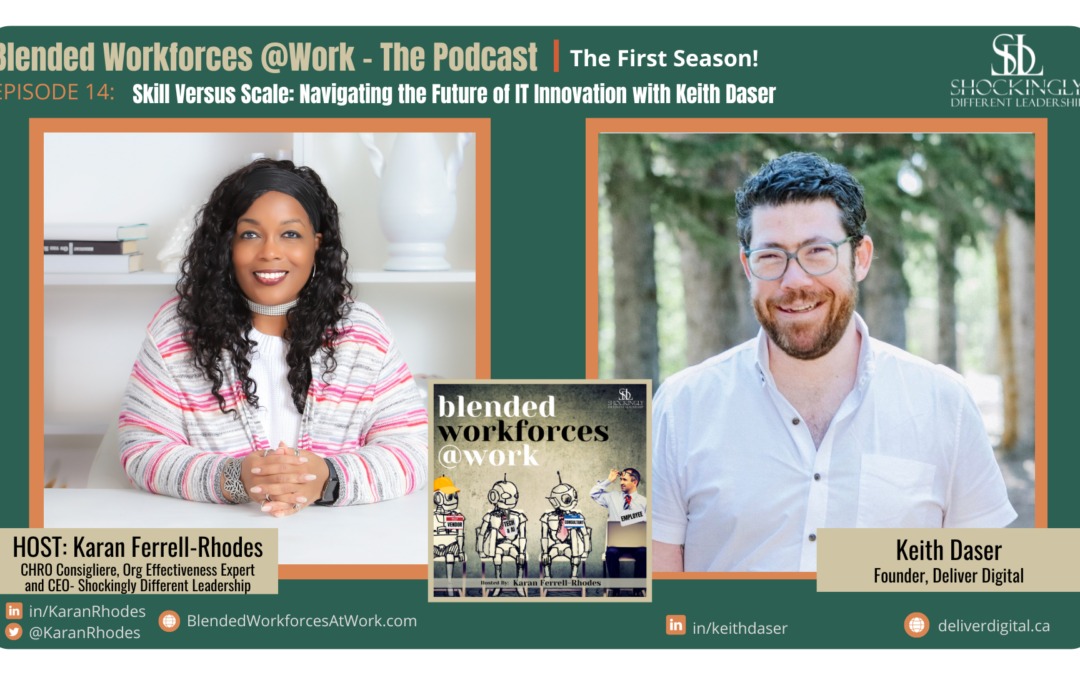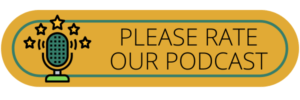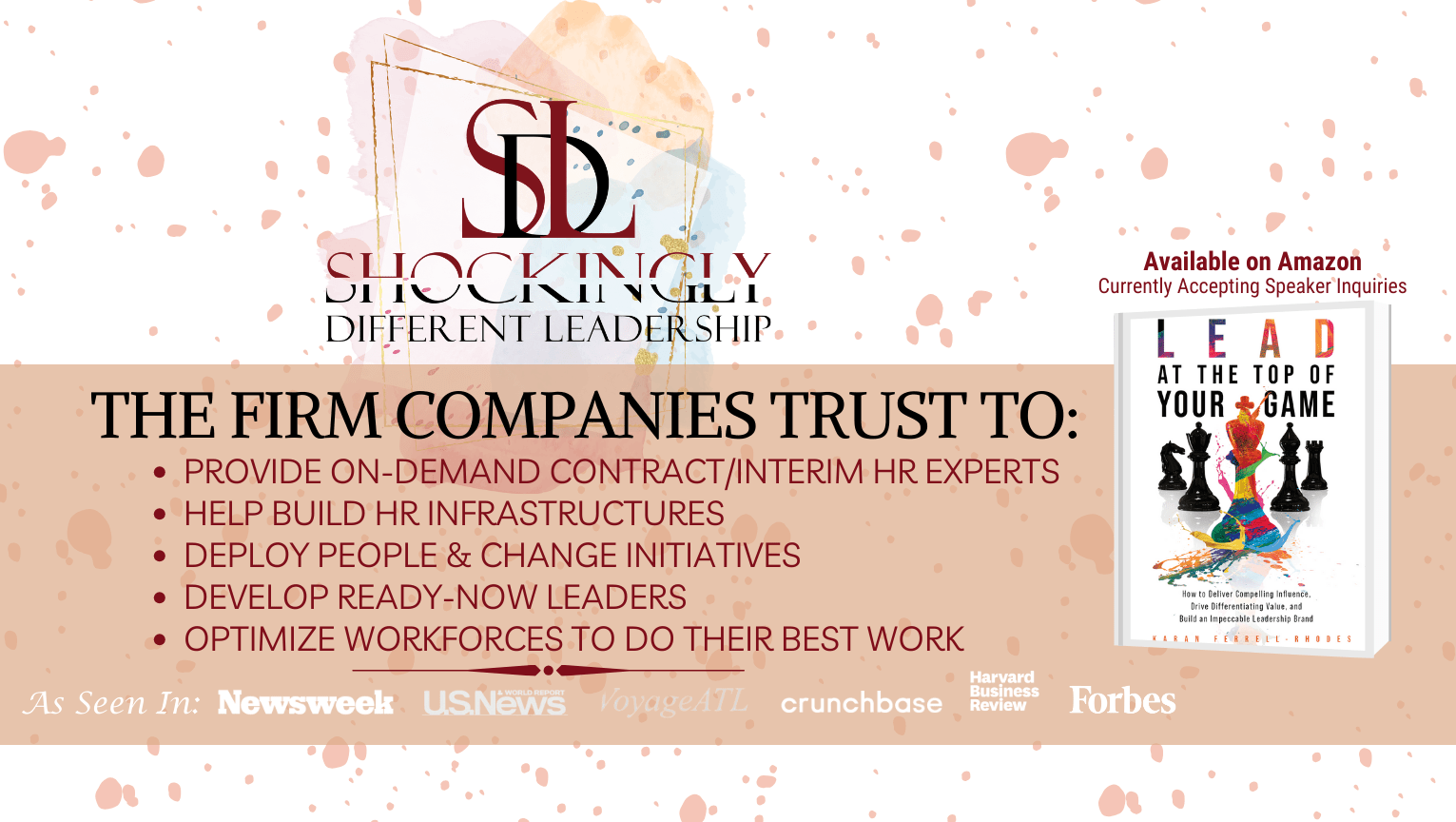IN THIS EPISODE, KARAN FERRELL-RHODES INTERVIEWS KEITH DASER.
Keith dives into topics ranging from digital transformation strategies to navigating the complexities of AI and security integration, all while sharing insights and debunking myths surrounding these pivotal areas!
Keith Daser is the founder of Deliver Digital. At Deliver Digital, Keith leads initiatives to optimize and manage technology partnerships and expenditures for SMBs and mid-market clients. With over fifteen years of experience in the technology industry, he has honed a passion for developing innovative solutions, bringing them to market, and mobilizing teams to tackle intricate challenges.
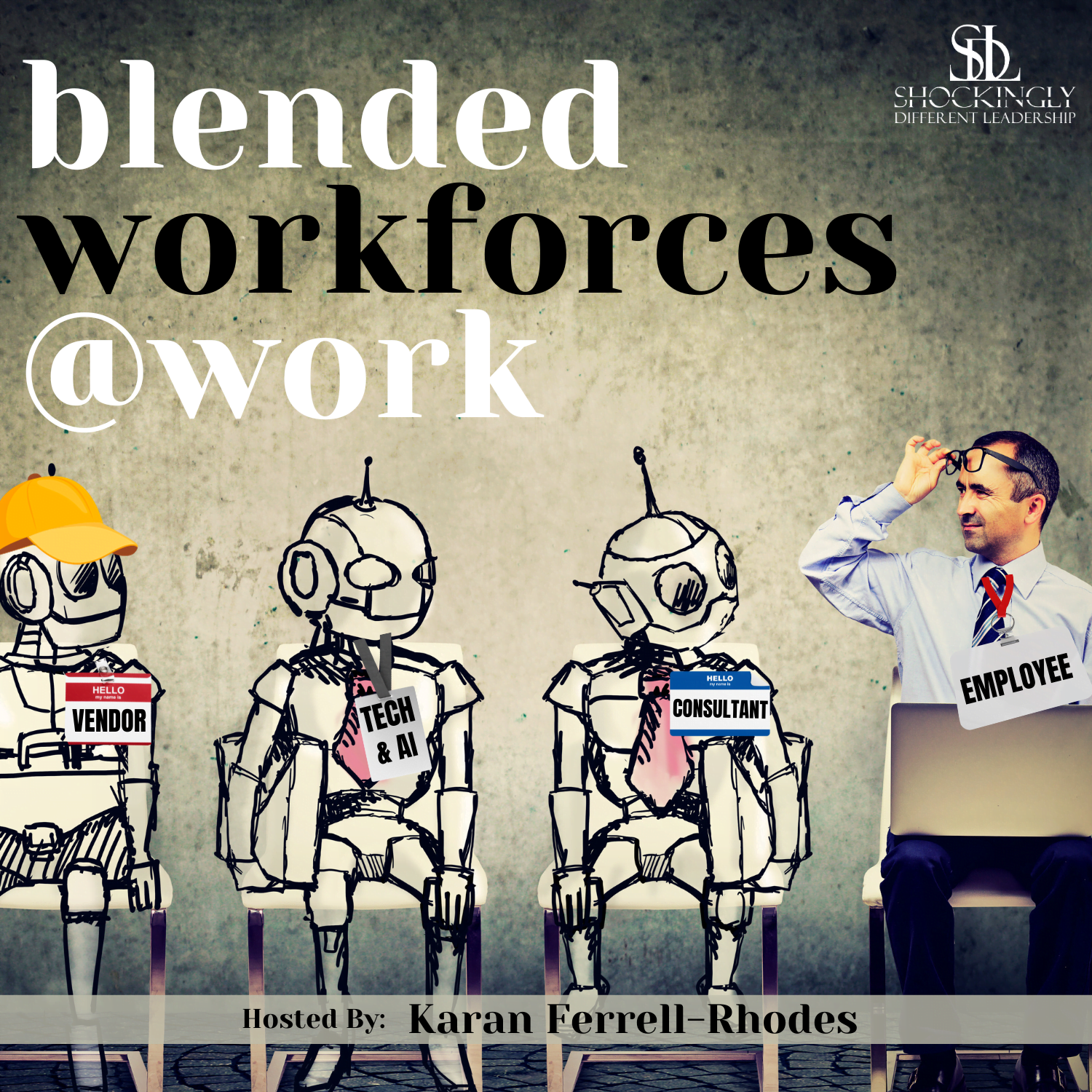
Posted by
SDL Media Team
Rather view our video podcast?

WHAT TO LISTEN FOR:
- What are common myths about digital transformation?
- What are the opportunities in the role of technology in businesses?
- What challenges do organizations face in the AI and security markets?
- What gaps in the technology landscape does Deliver Digital address?
- How does Deliver Digital optimize technology and partnerships?
- Who are Deliver Digital’s ideal clients?
- How does Deliver Digital approach technology evaluations?
“The right people in the right seats applies to technology [solution providers] and [vendor] partners.”
FEATURED TIMESTAMPS:
[03:32] Keith’s Life Beyond Work
[05:32] Keith’s 15-Year Journey in the Technology Industry
[07:51] Addressing Market Gaps in the Fast-Evolving Technology Landscape with Deliver Digital
[10:17] Revolutionizing Help Desk Services From Labor-Intensive Operations to Tech-Driven Solutions
[12:05] Deliver Digital’s Approach for Optimizing Technology and Partnerships for Tailored Business Solutions
[15:34] Bridging Organizational Gaps for Enhanced Partner Collaboration
[17:20] Delivering Digital Solutions with Integrity and Impact
[19:37] Empowering Small to Medium Businesses with Strategic Technology Solutions Across North America
[21:46] Streamlining Technology Evaluations for Rapid Transformation
[23:13] Signature Segment: Keith’s entry into the LATTOYG Playbook: Starting Small and Embracing Collaboration for Real Results
[26:32] AI and Security Landscape
[30:52] Signature Segment: Keith’s LATTOYG Tactics of Choice: Leading with Courageous Agility

ABOUT KEITH DASER:
Keith is the founder of Deliver Digital, which helps to guide business and IT leaders through the selection, management, and governance of key technology partnerships. This work is reshaping the technology solution provider landscape by helping to reduce cost and duplication, increase collaboration, and implement effective and sustaining governance models.
With 15 years of experience across the technology channel, he has orchestrated significant digital shifts of some of Canada’s most progressive companies, led the sustained growth and transformation for one of the nation’s largest IT service providers, and brought several new services and products to market.
LINKS FOR KEITH:
- Website: deliverdigital.ca
- LinkedIn: linkedin.com/in/keithdaser
- Instagram: instagram.com/deliver.digital/
ADDITIONAL RESOURCES FOR YOU:


Episode Sponsor
SDL is the go-to firm companies trust when needing to:
- supplement their in-house HR teams with contract or interim HR experts
- implement leadership development programs that demonstrate an immediate ROI and impact on the business

Episode 14 | Skill Versus Scale: Navigating the Future of IT Innovation with Keith Daser
Keith Daser 00:00
One of the things that has become really established is, you know, the managed service market is growing rapidly across the board. This is a incredibly fast paced and growing market. But it has gone through a very large period of standardization. So as you move from one company to the next to the next to the next, a lot of these companies are starting to look exactly the same and they’re moving to financial models that are perceived. They’re moving to fixed fee models. And they are starting to mirror each other in a way that just doesn’t actually give a ton of choice to end customers in terms of how they actually consume those services.
Karan Rhodes 00:03
Blended workforces are one of the hottest talent strategies today, where employers are using a mix of traditional employees with external resources like independent contractors, coaches, consultants, vendors, and technology solutions, all in order to enhance competitiveness, ensure cost flexibility, and expedite business goals. But how are the successful companies infusing blended workforces into their business strategy? And what are the critical success factors and pitfalls to avoid during implementation? And on the flip side, what does it really take for suppliers to improve their chances of finding and landing contract opportunities? The devil is in the details, my friends! I’m your host, Karan Ferrell Rhodes, and it’s time to get smarter about Blended Workforces at Work! Hello, my superstars This is Karen and welcome to another episode of the blended workforces that work podcast. Welcome to today’s show, because and to use selected an absolutely fantastic day to to in tune in because we have a tremendous guest that is going to talk to us about how companies and clients and businesses really should approach thinking about their technology solutions and strategies. And as you know, technology is a key piece of the whole blended workforces equation. So we want to welcome to today’s show Keith Daser, who’s the founder of the firm Deliver Digital, which helps guide businesses and IT leaders through the selection, management and governance of key technology partnerships. He has over 15 years of experience and no, he does not look to be that old at all. I don’t know how he has so many years of experience. I need his fountain of youth. But he does have over 15 years of experience across the technology channel, and has orchestrated significant digital shifts for some of Canada’s most progressive companies. And yes, he is from from my US space folks north of the borders. So we’re so happy to have and so welcome to the podcast Keith.
Keith Daser 02:15
Awesome. Thank you so much for having me, Karan, it’s a pleasure to be here.
Karan Rhodes 02:19
We’re absolutely thrilled to have you. And we really want to dig in deep into this topic of technology, we could could probably talk eight hours on it. But we’d love to get more perspective of, you know, what are some of the needs in the marketplace these days? And what is your company deliver digital contributing to that and helping to guide you know, executives who are trying to figure it all out. But before we do all that, we’d love to learn just a tad bit about you personally before we get started. So just for as much as you feel comfortable. Would you mind giving us a sneak peek into your life outside of work?
Keith Daser 02:58
Of course. So I definitely have a few things that keep me busy. First of all, we have a 16 month old daughter at home. And so that definitely keeps my wife and my hands full we have two dogs on top of that.
Karan Rhodes 03:11
Oh, conratulations.
Keith Daser 03:11
Thank you. So busy and exciting household on that front. And to fall into the Canadian stereotype. I play a lot of hockey. And so I play hockey a couple times a week. Usually it’s a terrible hours into the evening. But that definitely keeps me busy. And as a fun fact, I actually was born in Vancouver, in Canada, but I actually departed three months old and spent the first 13 years of my life traveling the world live in Singapore and Malaysia, Vanuatu and really getting a cool global perspective for the first kind of formative years of my life.
Karan Rhodes 03:44
Oh, how lucky were you? I thought I was a world traveler. I’ve traveled to over 30 countries. But I will say where we did travel, I tried my best to bring our family along when possible so they could see the world at a young age and kind of appreciate all the diversity and adventure that’s out there. So cool for you for being able to be able to do that in your young age as well. It seems like it shaped you a lot.
Keith Daser 04:12
It definitely led to a really interesting perspective. I think that getting outside of the bubble of what exists, and seeing how other people live, how other people interact with the world was really interesting. In fact, when we moved back to Canada when I was 13 years old, that was almost the strange part to me. I can imagine that, you know, I had a different upbringing and moved to Kelowna BC, which is the wine region for any of the wineries out there. And that actually was the culture shock moving back to Canada for me at 13.
Karan Rhodes 04:41
Very interesting. Well, thank you so much for sharing that. Well, before we talk about your company. Can you just give us a high level of your career experiences and then lead us into what made you start deliver digital,
Keith Daser 04:59
Of course and I think You were very generous with the compliments around my 15 years of experience. And I do have 15 years of experience across the technology industry. So right out of university, I actually started my first job at Xerox selling photo copiers, not at all what I expected to be doing coming out of university. But I think that it gave me an incredibly important foundation in the world of sales in the world of objections in the world of learning how people think, from a business growth, business growth perspective. You know, from there, I spent a couple years in the print industry, and learned a ton. I then moved into the staffing and projects industry where I was helping find both going to high level development and project management members, for organizations across Western Canada. And then I took a step forward into an organization that ended up being one of the largest managed service companies in North America. And you know, I was employee number seven, in Calgary when I started there. And we, over the last 10 years grew that into one of the largest preeminent managed service companies in North America. And we saw that the company explode, got to learn a ton got to interact with some of Canada’s leading enterprises. And at the end of that tenure was leading the team of managed services and digital transformation, folks across Western Canada. And so we’ve been on a team of over 100 people in doing that.
Karan Rhodes 06:27
What was it like being employee number seven?
Keith Daser 06:31
it was a lot of fun, like, and I think that it, you know, it really gave it gave me great perspective on the lifecycle of organizations as well. You know, employee number seven, it was an incredibly tight knit organization, you know, everyone would go on, and you’d go on ski trips together, and you would interact in a very specific way. And, you know, at that time, it was almost a small group against the world. And mentality, I think, fueled a lot of the growth and ambition of the organization. And then as the organization grows, and I’m sure you have an appreciation of this, from an HR standpoint, inevitably, that culture does shift as much as you try to hold on to some of those things that you, um, you know, made it really special.
Karan Rhodes 07:09
Wow, amazing. So what was the brainchild that created Deliver Digital, how did that come to be?
Keith Daser 07:18
Of course, so I actually left that organization late last year, and decided to take a few months to recharge with my brand new daughter at the time. And one of the things that that I had been noticing and seeing in the market for the years leading up to it was a set of challenges that didn’t just exist in the SMP, it didn’t just exist in the enterprise, it really existed with the changing tide of technology. And I think that there were some common patterns we were seeing from the leaders we were talking to, around how they were wanting to interact with technology, how they were wanting to plan for some of their future growth, how they were hoping to interact technology into their businesses, but just couldn’t find the mechanisms to do that in the way that the market was. And so one of the things that has become really established as the the managed service market is growing rapidly across the board. This is a incredibly fast paced and growing market. But it has gone through a very large period of standardization. So as you move from one company to the next to the next to the next, a lot of these companies are starting to look exactly the same and they’re moving to financial models that are proceed and move into fixed fee models. And they are starting to mirror each other in a way that just doesn’t actually give a ton of choice to end customers in terms of how they actually consume those services. And so what this used to be a problem that organizations need to solve was around scale. And so if I didn’t want to build out a 24 by seven operation, if I didn’t have the depth as an organization or desire to build out my own IT team, I could essentially consume that as a service and add scale to my business through managed services. But I think that as some of the new technologies are starting to hit the market as technology is getting smarter, as people that are using technology are becoming more and more adept with the way that it interacts with their day to day work. Those requirements are starting to change. And no longer is the you know, the requirement for these organizations to buy scale, they actually need to buy skill, and they need to buy very specific skill sets that are going to help help solve very pointed technology problems, rather than just buy something on mass.
Karan Rhodes 09:36
And these are skills sets that technology offers or skill sets that people offer are both?
Keith Daser 09:43
I would say both and I think that, you know, I’ll provide a couple examples here, you know, and I’ll use that I don’t want to pick on it because there’s obviously a huge industry on this but help desk is a great example. Yeah, sure. So help desk has a combination of technology integrations and people integrations and so right now it’s still a very labor intensive business where you have to staff organizations around the clock with lots and lots of people. And there is a growing trend to arm these people with as much technology as possible from everything from Smarter phone systems to smarter knowledge bases, to smarter documentation, everything that will actually make those people more efficient. But it’s still a very much scale sized operation. As you start to look at that problem a little more specifically, there’s a chance to actually focus in on how do I look at that problem and eliminate that need to build this out over and over again, and look at the outcome, which is how do I actually does not have to reset my password? You know, how do I not have to ask a human being every time I need access to that file? Yeah. And then you can look at technology to be able to solve that. But then when you start to make that leap, the challenge no longer is the same people that are delivering those services, aren’t the people to actually solve it, because you need a very specific technological skill set to be able to actually implement those technologies that will take you to that next level where a lot of the technology will take on kind of the legs of itself.
Karan Rhodes 11:14
And so how does Deliver Digital meet that challenge? Do you help organizations rethink their approach from top to bottom? Or how do you help them augment what they already have? And how do you play in this space? And who is your target market?
Keith Daser 11:31
For sure. So the work that we do is going into these organizations and first helping them actually understand what they have. And I know that that sounds like a funny first step. But discovery is an incredibly important element, that to be able to meet organizations where they are, which is really important. And so what we’ll do is we’ll go into these organizations will map out everything from their existing technology partnerships to their existing technology footprints, the software’s and solutions they’ve invested in the capabilities and skill sets that they have within their own teams and their own walls. And then the requirements of the organization, which is definitely not a one size fits all approach here. So then we’ll go through the organizational design element, from a technology perspective to say in order to meet the business goals that you have in it, how do we actually align all of those specific elements we just reviewed, to be in a position to be able to actually deliver that. And oftentimes, when we go through that process, we’re going to find an incredible amount of efficiency. You know, there’s a lot of times organizations have the same software, doing multiple things, they might have software that’s provisioned for people that aren’t even in those seats anymore. Or they might have software’s that are just completely overlapping in function, because different departments are buying. And so by mapping those platforms out, we’re able to find some of those efficiencies. But we’re also able to line those specific technologies up with the goals of those organizations to help them move forward. So we look at that as the first step as well. So that discovery element helps us understand where organizations are, and then taking it from there, we then make sure that we’re matching those right capabilities. And those right requirements with the partners in the seats that are the right fit for those organizations. The same way, you know, I’m a big fan of the book Good to Great from Jim Collins. Yes, yes. And, you know, he talks a lot about the idea of the right people in the right seats on the bus. And I think that extends past just employees, which has always been the framework that people look at it with, to your partners to your entire ecosystem, that that wraps around the delivery of everything. And so then taking the discovery framework, mapping it out, making sure you have the right people on the bus. And then finally, once you have those right pieces in place, and delivering putting them in place, then governance and agile mechanisms, so it actually stays evolving with the organization going forward.
Karan Rhodes 13:53
I love that. And you started to touch on the question I was chomping at the bit to ask you was, I’m sure when experts like you come in to help organizations, the current partners that are already there, technology suppliers or what have you. I am assuming there’s because you’re evaluating how they’re integrating with the business workstreams I bet they’re both nervous when you come in. As and you start asking questions. And also I was really nervous because they’re, you know, they don’t want to lose a business or have you recommend a more efficient partner that has skills better suited for that company? So I’m just curious, how do you balance the interaction with the business leaders who you’re trying to help? And the current partners that they’ve already probably invested quite a bit of money in, especially when there are probably better solutions that the or recommendations that you all are providing? What’s that dynamic all about?
Keith Daser 15:00
For sure. I think that’s a great question, Karan. Because the reality is, is that a lot of these partners are actually sometimes really grateful. And I know that sounds like a funny statement. But a lot of times these partners also feel stuck. If there’s dissatisfaction with the organization level, the partners might actually feel the exact same way. And you have two parties that are just kind of trying to figure out their way through it. And oftentimes, what I’ve seen is that when you start being able to talk the language of these service providers, and the software partners and these technology partners, you can actually play a little bit of organizational translator, so that you can understand the goals and objectives and the frustrations and the aspirations of the leaders of those businesses, but then be able to also articulate that in a way that’s meaningful to the service providers themselves. And oftentimes, it’s not even the delivery challenge. It’s a communication challenge. And if we’re able to bridge that gap, it oftentimes gets those partners unstuck and puts them in a scenario where they can actually perform some of their best work. Because you know, some of the things that I’ve been most excited about, that we’ve been able to deliver for some of our customers already have been in the vein of actually helped him to elevate some service partners, to the point where they’re actually bringing those learnings to their other customers. And I think that that’s the cool thing where it brings the entire ecosystem forward. Yeah, rather than just learnings on that one to one basis.
Karan Rhodes 16:27
Interesting. Now, do you all have a list of partners that are, have a niche specialty that you love to recommend and work with? Or are you partner agnostic, and are truly just trying to find the best one solutions for your clients?
Keith Daser 16:46
As I was starting to Deliver Digital, this was one of the things that I wrestled the most with being in the industry for a while I have a strong network of people that deliver these services. And obviously, I have relationships with a lot of these organizations. But the ability to be Switzerland, and be a little bit to be truly agnostic, and not, except to commission for a referral to not to get the bonus for those connections, is, you know, some short term losses in terms of any Senate kind of monetary side of things, but I think allows me to really recommend the best fit partners for those organizations. And so sure, if I know someone in the market, that’s going to be a great fit. Do I make sure they’re included in that competition, of course. But it’s been really critical to our business model to make sure that we’re not financially tied to those recommendations.
Karan Rhodes 17:40
And love that idea that, you know, I we had one other guest a few weeks ago, that particularly targeted enterprise level firms. And their business model was they sourced like the top 150 firms from across the world that specialize in supporting enterprise level companies. And then they did have kind of a revenue share model. So I know there’s a million types of business models out there in the world of technology and technology advisement. But it probably is ideal for the clients and the customers that you’re looking at so that they trust that you are truly providing the best options for them, and not just trying to resell or taking a percentage off of recommendation. I like that.
Keith Daser 18:31
For sure. And not to sound nerdy, but I actually listened to the episode as well. And it’s a great business model they have over there, too. And I think that with it being really specific, I completely understand that too.
Karan Rhodes 18:43
Yeah. So I’m just curious, um, Keith, what is top of mind for you and your team right now? Is it really scaling, growing and scaling the company right now? How are you getting in front of your ideal clients? And can you share again, who are your ideal clients, so we can kind of get that out there to our listeners as well.
Keith Daser 19:03
Of course, so the ideal customer for deliver digital, I would say, really falls in that small to medium business across North America. And so we’re operating right across North America, you don’t have to be north of the border to work with us. But we know what we’re looking for organizations that kind of fit a certain mold. You know, these are organizations that are in that kind of small, medium business. They see technology as an opportunity within their organization. But a lot of the customers that we’ve had a lot of success with share a similar DNA. And these are organizations that understand technology is strategic, but they’re not quite sure how to turn that corner there. You know, I would put them as not horribly dissatisfied, but just longing for something more and they just have this belief that there’s another gear that technology can help their organizations get to.
Karan Rhodes 19:55
Yeah.
Keith Daser 19:56
And those are the organizations that we work the best with and these are also the same in companies that don’t have large vendor management departments, they don’t have large technology and IT teams and don’t necessarily have the scale of some of those larger enterprise organizations to be able to invest in some of the structures to build these out. And so that blended model of having in house teams, with the right partners with the right hybrid mentality is not just important for their delivery, it’s critical. It’s the only way they can actually do it.
Karan Rhodes 20:30
Yeah, I can see, definitely see that. And, you know, I’m sure one of the most common questions that executives, when they engage with you is like, Okay, well, what kind of timeframe are we looking at? And how long does this take? I’m, I’m sure it doesn’t take only two hours, I’m sure this isn’t depth evaluation process. So can you give us some perspective? And I know it depends upon the client, but can you give us a thumb in the win range of so you know, companies can prepare? About how much time does a good evaluation of their technology stacks? Was does that take in your experience?
Keith Daser 21:12
Yeah. And so with technology evaluation, like you can spend four years and like turn over every single rock and review every single line of an invoice, and still probably find more to look at the way we approach it is really sprint based. And so most of our discovery work takes place between a two week and three month periods. So based on the size of the organization, we’re going to parachute in, we’re going to work with your team on a really focused basis to get as much information as possible within that timeframe. And then we are going to rapidly turn that into a series of kind of recommendations in the path forward, the important piece for us to actually, I’m glad you asked the question to have that timeframe around it is because these can easily turn into mega projects. Yeah. And it’s, you know, there’s never any shortage of information that you know, especially in the technology side, there’s always something more you can find out, there’s always something more that you can learn, and the ability to put a timeline on it. And the ability to have a clear milestone date is critical for these not to turn into forever projects.
Karan Rhodes 22:19
Yeah, definitely, in your experience, what is either one myth or blind spot that organizations have that you would love to help correct or avoid when they’re going into this type of evaluation?
Keith Daser 22:39
Can I pick two? And maybe that’s a I’ll break the rules a tiny bit here. Yeah, I think is the idea that it needs to be this broad, sweeping change.
Karan Rhodes 22:49
Good point.
Keith Daser 22:50
And so, you know, I put out a post a while ago, where I made a little bit of a joke that I had a digital transformation swear jar on my desk. And, you know, I think that the word digital transformation has actually become a little bit of a double edged sword in terms of progress, because I think that it does two things. One, it makes it seem a lot bigger than it needs to be sometimes. And sometimes the first step is actually this needs to be the first step. And it doesn’t need to be this large, sweeping organizational overhaul. It just needs to be momentum in the right direction. And then I also feel sometimes that digital transformation can be used in place specific actions and goals, specific, specific actions and goals. Oh, actions and goals. You know, it’s really easy to try to sequester budget for digital transformation initiatives without actually saying what it’s going to do. And I think that
Karan Rhodes 23:44
It sounds good. It sounds like something everybody should be high fiving over. But yeah.
Keith Daser 23:50
It sounds great on paper, but then when you actually, you know, after you’ve spent a certain amount of money, you’re not quite sure what you’ve gotten, you’ve just digitally transformed.
Karan Rhodes 23:57
Yes, right.
Keith Daser 23:59
And so I think that a myth is that it needs to be overhaul a giant overhaul. I think one of the other big myths is that this needs to happen somehow secretly in the backroom. And I think that a lot of organizations are so nervous about change management right now. Because organizations have gone through so much change, that they believe that they need to come up with some sort of fully baked plan
Karan Rhodes 24:28
Ahead of time,
Keith Daser 24:29
That they then just kind of have this grand unveiling like a magic show that they would present to their organizations. And the reality is, and I think what makes a great discovery is actually working with the same people that use that technology every day.
Karan Rhodes 24:45
Oh, absolutely. Yea.
Keith Daser 24:47
And get their perspectives and make them part of the process to get that buy in and to get that excitement rather than have some sort of grand unveiling.
Karan Rhodes 24:55
So give you five kudos on that one, you know as a organizational effectiveness can assaulted, I truly encourage more transparency than that major change initiatives. And also building your own group of ambassadors who are living and breathing what you’re trying to improve on every single day, because they can give you insights that no one else can because they’re in the weeds have, have changed every day. So to your point, there’s no need to be secretive about it, there is a need to get the company at a level of readiness to tackle it. But it doesn’t have to be rocket science, you know, and take 15 years to sugarcoat it. Or like you said, hide in secret and then spraying it on people, sometimes, the more you share with the right individuals, that might even accelerate the transformation that you’re trying to go through. But feel free to poke holes in that and throw tomatoes at me if you disagree. What are your thoughts?
Keith Daser 25:58
I could not agree more. And I think that the opportunity for organizations right now is tremendous. You know, one of the questions that you asked that I think I might have skirted a little bit earlier was what are some of the things that you’re you’re excited about? And what are some of the things that are on the horizon that, you know, the business is focused focusing on? And, you know, I’d be remiss not to talk about the progress in AI, and the progress in really technology delivery across the entire industry right now. And I think that the next couple of years are going to be incredibly transformative in terms of the role that technology plays in businesses. You know, during the COVID timeframe, I think that was a little bit of gasoline on the fire in terms of the technology progress that the world made. And I think that ball will continue to roll faster and faster.
Karan Rhodes 26:46
Yep.
Keith Daser 26:47
And the ability to have entire organizations really have technology be part of their core business is such a tremendous opportunity. But the people to your point need to be a part of it, otherwise, it will just get to resist it.
Karan Rhodes 27:01
No, I totally agree with that. I totally agree. And you know, and this might be just a parent’s perspective. But right now, there’s, you know, a ton of pop up businesses, if you will, they’re focused in the whole AI arena. But I think as the technology matures, you’re gonna see a lot more major players in the niche areas that in companies are going to need it. And I mean, they’re niching down now to, but I think there will be a whole industry of renowned companies that have particular niches, there always be smaller ones as well. But I think what I’m trying to say is I just think is going to mature as an industry overall, and people are going to force to be get smarter about how AI is going to impact the businesses and the way they work and how they think about, you know, their workforces and work path. um, moving forward. So. Just my two cents.
Keith Daser 28:06
I think your two cents is spot on, there’s two areas in my opinion, that are ripe for you know, they’re kind of the goldmine territory right now, where there’s so many players, it’s incredibly saturated. And there’s has been some business models that have popped up that have been very specific, that are just layering things on other technology. And to your point, I think that some of those will either go away or morph into more established or mature businesses. But you know, in both security and AI, and this is something we uncovered a lot of organizations, there’s so much saturation in the market, that but there’s also so much hype in the market that organizations are just layering tools on tools on tools, or platforms on platforms, and half of them are actually redundant.
Karan Rhodes 28:50
Well, you know what, it’s just gonna keep Delivered Digital in business and you’re just gonna have to scale the yawn believe very soon.
Keith Daser 28:58
I’ll keep my fingers crossed there. I think that it definitely create some opportunity.
Karan Rhodes 29:02
It does, it does. Well, I know we’re running a little short on time. I cannot believe we’re almost through the podcast, I blanked and and time has just flown. It’s been such a great conversation. But as you know, Keith, one of the things that we love to ask our guests is, you know, I wrote a book on leadership execution, like how do you the last mile of leadership, how do you bring things home to reality? And our research showed that there were seven main approaches or tactics that some of the world’s most successful leaders use, and we love to ask our guests, which of the seven really popped for you and the audience members, all of them are equally important. You just leveraged them at different times, when you’re being a leader of a great company such as deliver digital, but you were so kind to share with us that leading with courageous agility really resonated with you and for the audience members who don’t know leading with courageous agility is all about having the courage and the fortitude to take calculated risk and do what you think is right, even if the feature is unclear. So it’s all about still taking those baby steps, even if you’re not sure what’s going to happen. So curious minds want to know, Keith, why did leading with courageous agility really resonate with you?
Keith Daser 30:18
You know, it was, I think one of the ones that stood out most in terms of the timing of starting the business. You know, this is a little bit of a leap right now, and, and through my career, I will always probably to a little bit of a fault being fairly steadfast in some of the things that I believe. And this is a huge opportunity in the market. And but it’s something that doesn’t quite exist right now, in its current fashion, and is a little bit disruptive, it is a little bit of a different take on how organizations can consume and manage and take advantage of some of the technology and partnerships that are out there. And so going out and taking the leap and, and really creating this, this business, I think really courageous ability, agility spoke to me there, I did really struggle on pure transparency between that and the stakeholder savvy, I really hummed and hawed there. But the winner was courageous agility?
Karan Rhodes 31:11
Well, both are very popular. Just so you know, I think courageous agility is the most popular one between this and our other podcasts Lead at the Top of Your Game. And I do think stakeholder savvy, and intellectual horsepower, leading we internally, there’s the next two most popular so you’re right in line, you’re just right.
Keith Daser 31:30
Oh, my goodness. Well, whatever you wannna hear.
Karan Rhodes 31:34
Yes, absolutely. Well Keith, we’re gonna have all information about you deliver digital, and all the fantastic things that you all are doing in the show notes. But I do want to take a second to give you airtime, to share with our audience, where they can find you and Deliver Digital and how to look in and connect with all of you look at your services and connect with you should they have a need. So can you share a little bit where to find you all,
Keith Daser 31:59
of course. So I think that I would love for all of you to connect with me on LinkedIn, you can find me on LinkedIn at Keith Daser, where I have both my personal page, which I would love for you to kind of add and follow, where we also have a newsletter, where we publish one kind of tech tip per week, around the industry around things that are happening, as well as some perspective on Technology Partnerships.
Karan Rhodes 32:21
Nice.
Keith Daser 32:22
On top of that, we also have our website, which is www.deliverdigital.ca.
Karan Rhodes 32:27
Dot Ca, everybody. Dot Ca,
32:33
The CA is important there on that one, you know, and I think both of those would be fantastic. I would love to hear from any of your your listeners. This has been just a pleasure to be here as well.
Karan Rhodes 32:44
Oh, it’s been fantastic having you, Keith. And thank you so much for the gift of your time and the insights you’ve shared in this tech ever growing and ever complex tech space. We really, really appreciate your time. And thank you for being on the show. Thank you so much. And listeners. Thank you too, for joining this episode. And we know there are a million other literally million other podcasts that you could be listening to, and we don’t take the gift of your time very lightly. That’s why we strive to have fantastic guests like Keith, on today’s show to bring you insights, knowledge and information to help you no matter your industry or career. And so all we ask of you all is just to like and share the podcast with just one friend so that we all can together get smarter about blended workforces at work. Thanks so much and see you next week. Well, that’s our show for today. Thank you again for listening to the Blended Workforces at Work podcast. You can check out the show notes, additional episodes, bonus resources, and also submit guest recommendations on our website at blendedworkforces@work.com. You can also follow me on Twitter, LinkedIn, Instagram or YouTube by searching for the name Karan Rhodes with Karan being spelled K a r a n. And if you like the show, the greatest gift you can give would be to subscribe and leave a rating on your favorite podcast platform of choice. This podcast has been a production of Shockingly Different Leadership, a global consultancy which helps organizations execute their people, talent development, and organizational effectiveness initiatives on an on-demand, contract, fractional, or project basis. Huge thanks to the SDL production and editing team for a job well done. Bye for now.

Want to be a Podcast Guest?
Check out our guest qualifications and submit our brief form to be considered.
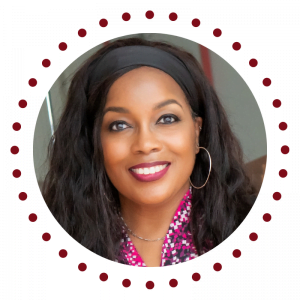
Want Karan to be Your Podcast Guest?
- Blended Workforces & the Gig Economy
- Critical Execution Tactics of High-performing Leaders
- Entrepreneurism & Leading Your Business

Want to be a Podcast Sponsor?
All sponsorships come with a featured spot on show notes pages.
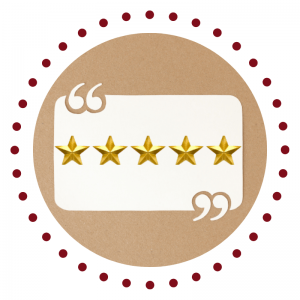
Like the Show? Please Leave a Review
If you like the show, it would mean the world to her if you left a quick review.
Your word is golden, so a HUGE thank you in advance!

#KeepInTouch
via our podcast alerts
Subscribe now to discover why thousands of monthly listeners who are passionate about doing their best work prioritize time each week to listen to the Blended Workforces @Work podcast.
#AboutSDL
#WhereToFindUs
MAILING
4480-H South Cobb Drive
PMB 219
Smyrna, GA 30080
PHYSICAL
2121 NewMarket Parkway
Ste. 108
Marietta, GA 30067
#ContactOptions
Customer Service Email:
service@shockinglydifferent.com
Call or Text:
770-384-1103
#Office Hours
MON-FRI
8:30 AM – 6:30 PM
Weekends By Appointment

